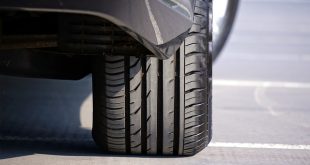Ever consider what might occur if a vehicle’s exhaust system is submerged underwater? It’s important to be aware of the possible effects of this condition. We will examine these effects in this blog post and discuss what this means for both the car and its surroundings.
Water and the Exhaust System
There may be a number of problems when the exhaust system of a car comes into touch with water. The possibility of water getting into the exhaust pipe is the most serious worry. The car may experience this if it is driven through large puddles, on flooded roads, or even if it is parked in a flood-prone area.
Hydrolock
Hydrolock is one of the most serious effects of water getting into the exhaust system. When water gets inside the engine cylinders, it causes hydrolock, which stops the pistons from moving forward as they normally would. This may result in serious damage to the engine and even a total breakdown.
Corrosion and Rust
The increased risk of corrosion and rust is another effect of submerged car exhaust. Corrosion can be hastened by water, especially if it has salt or other impurities. This may degrade the exhaust system over time, resulting in leaks, holes, and decreased performance.
Catalytic Converter Damage
An essential part of the exhaust system, the catalytic converter, is especially vulnerable to water damage. The catalytic converter can become blocked with water while immersed, which prevents it from converting dangerous gases into less damaging ones. This may lead to a decrease in engine performance, an increase in emissions, and even possible engine damage.
Environmental Impact
A car’s exhaust being submerged can harm the environment in addition to causing damage to the vehicle. Water can interact with the hot gases in the exhaust system and produce steam, which may include hazardous compounds. Air pollution may also result from elevated emissions brought on by a damaged catalytic converter.
Immediate Actions
Turn off the engine to prevent further damage if you discover that your car’s exhaust is submerged in water. Avoid attempting to start the car as this can make the Hydrolock problem worse. It is best to call a qualified mechanic or towing service to assess the situation and offer the necessary assistance. Contact a qualified mechanic HERE
You can reduce the damage and guarantee the safety of your vehicle and the environment by being aware of these hazards and acting quickly. Always remember that preventing problems before they arise are always preferable to repairing water damage to your car’s exhaust system.
 Spot Dem Everything About Cars
Spot Dem Everything About Cars

